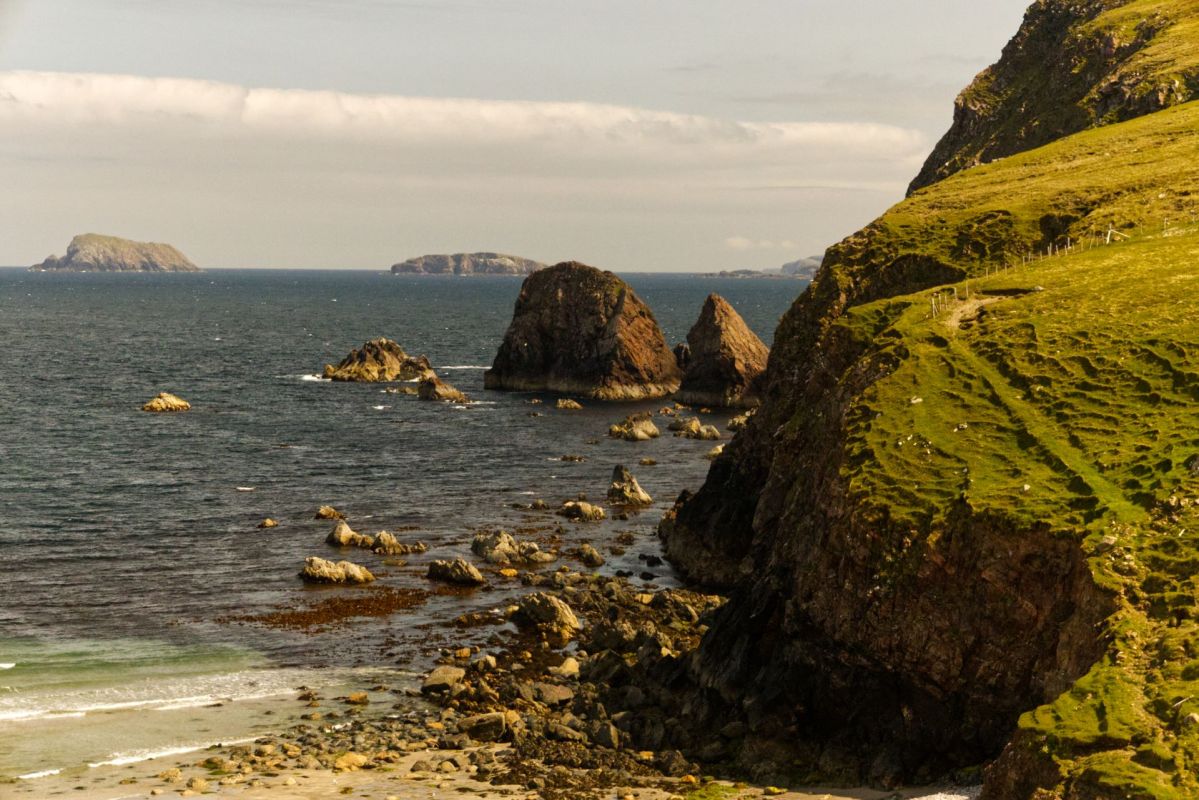Fifty-five whales — likely a family unit — recently became stranded on a beach in Scotland. Only one survived after rescuers were able to provide treatment and help it back into the sea, The New York Times reported.
What happened?
On July 16, the coast guard, police, and volunteers found 55 pilot whales beached in northwest Scotland. The group consisted of both adults and calves. By the time rescuers arrived at the Isle of Lewis, only 15 of the whales were still alive, according to the British Divers Marine Life Rescue.
"They were likely all in the same family, a unit traveling together for decades," Daren Grover, general manager of Project Jonah New Zealand, told The New York Times.
Why is mass beaching concerning?
This isn't the first major beaching event for pilot whales. No other whale species within their range is involved in as many mass strandings, per the International Whaling Commission.
Last fall, 230 pilot whales were beached on Tasmania's western coast. In 2011, about 70 of these cetaceans became trapped in shallow waters off the coast of Scotland, where rescuers were able to help save 20 of them.
This is just one more challenge facing pilot whales. Though not considered endangered, they face a deluge of threats, including becoming entangled in fishing nets and absorbing contaminants like heavy metals from their prey.
Plastic waste and increasingly acidic ocean waters due to planet-warming gases are threatening all marine wildlife — scientists predict that we may lose more than half of all ocean-dwelling species by 2100 if we don't change course.
What's being done about mass strandings?
A number of organizations across the globe are dedicated to marine rescue. In the case of this most recent beaching event, British Divers Marine Life Rescue coordinated the response.
Upon arriving on the scene, the organization's marine mammal medics administered first aid to the 15 surviving whales. Ultimately, only one of them successfully made it back out to sea.
While more than 50 responders participated in the rescue efforts, they faced some major challenges. The Isle of Lewis is only accessible by ferry or plane. Plus, the rescue charity was short on volunteers and equipment. Communication was difficult because of scarce cellphone signals there.
What causes mass beachings?
Unfortunately, researchers haven't quite pinpointed the cause of these mass beachings, but they have a few theories. Some think that mistakes in navigation could accidentally lead the animals to unexpectedly shallow waters, while others posit that they could be affected by anomalies in Earth's geomagnetic fields from solar storms. Whales can also be thrown off by sonar or taken off track by a sick or injured pod member.
In the case of this beaching, a team from the Scottish Marine Animal Stranding Scheme collected tissue samples, but a final conclusion could take months to determine.
The rescuers discovered one of the dead whales had a vaginal prolapse, and they suspect that the entire pod may have come ashore because she was giving birth.
What can I do to help?
If you encounter a beached whale or dolphin, do not attempt to return the animal to sea before a rescue team has arrived.
If you are in the United Kingdom, you can contact the British Divers Marine Life Rescue, which is available via a 24-hour hotline. In the United States, you should contact a local stranding network. Other countries and territories have similar resources.
While waiting for help to arrive, do not cover the animal's blowhole or handle its tail. Instead, stay quiet and provide rescuers with an exact location and details about the animal. You may also need to support the creature in an upright position, cover it with wet sheets or towels to keep it moist, and provide shade and shelter.
Join our free newsletter for cool news and cool tips that make it easy to help yourself while helping the planet.









